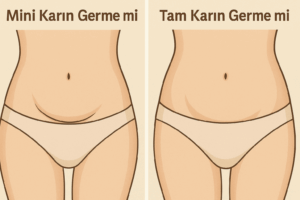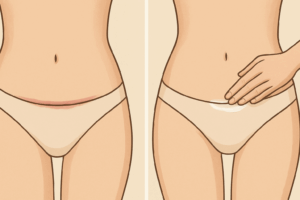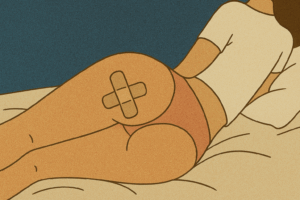Migraine is a common neurological disorder that affects the lives of millions of people. Characterized by symptoms such as severe headache, nausea, sensitivity to light and sound, migraine attacks can seriously disrupt daily life. However, the good news is that it is possible to reduce the frequency and severity of migraine attacks with the right approaches and lifestyle changes. In this article, as a neurologist, I will share with you 10 effective ways to prevent migraine attacks.
1. Develop Regular Sleep Habits
Sleep disturbance is one of the most common triggers of migraine attacks. Our brains are used to a regular sleep-wake cycle, and disruption of this pattern can increase the risk of migraines.
Recommendations:
- Go to bed and get up at the same time every day.
- Aim for the ideal adult sleep duration of 7-9 hours.
- Keep your bedroom dark, quiet and cool.
- Limit the use of electronic devices before bedtime.
Regular sleep not only prevents migraine attacks, but also improves your overall health and quality of life.
2. Apply Stress Management Techniques
Stress is a powerful trigger for migraine attacks. Chronic stress can increase the risk of migraines by raising cortisol levels in your body.
Effective stress management techniques:
- Meditation and mindfulness practices
- Deep breathing exercises
- Regular physical activity
- Having a hobby and making time for enjoyable activities
- Getting professional help when needed
Stress management is key to reducing migraine attacks as well as improving your overall quality of life.
3. Optimize Your Diet
Nutrition plays a critical role in migraine management. Some foods can trigger migraine attacks, while others may have a preventive effect.
Migraine-friendly nutrition recommendations:
- Eat regular meals and avoid skipping meals.
- Limit sugary and processed foods.
- Eat foods rich in omega-3 fatty acids (such as salmon, flaxseed).
- Focus on foods rich in magnesium (dark green leafy vegetables, pumpkin seeds).
- Keep your caffeine intake in balance.
I also recommend keeping a food diary to identify your personal triggers. This will help you understand which foods are problematic for you.
4. Exercise Regularly
Regular physical activity can be effective in reducing the frequency and severity of migraine attacks. Exercise reduces the perception of pain and lowers stress levels by increasing the release of endorphins.
Exercise recommendations:
- Do at least 150 minutes of moderate-intensity aerobic exercise per week.
- Opt for low-impact activities such as walking, swimming or cycling.
- Try activities with both physical and mental benefits, such as yoga and tai chi.
- Gradually increase the intensity of the exercise.
Remember, overly strenuous exercise can also be a migraine trigger. Therefore, listen to your body and know your limits.
5. Maintain Hydration Levels
Dehydration is a common factor that can trigger migraine attacks. Drinking enough water optimizes brain function and can reduce the risk of migraines.
Tips for hydration:
- Drink at least 8-10 glasses of water a day.
- Make sure you drink water before you feel thirsty.
- Drink extra water during and after exercise.
- Drink diuretic drinks such as caffeine and alcohol in moderation.
In addition to increasing water consumption, I recommend increasing your consumption of fruits and vegetables to maintain your electrolyte balance.
6. Recognize and Manage Your Triggers
Each migraine patient has unique triggers. Recognizing and managing these triggers is critical in preventing migraine attacks.
Common migraine triggers:
- Certain foods (such as cheese, chocolate, processed meat products)
- Alcohol (especially red wine)
- Bright lights or strobe lights
- Loud sound
- Weather changes
- Hormonal changes
I recommend keeping a migraine diary to identify your own triggers and develop strategies to avoid them.
7. Optimize Medication Use
Medications can play an important role in migraine management, but overuse can paradoxically lead to "rebound" headaches.
Recommendations on the use of medication:
- Take preventive medicines regularly as prescribed by your doctor.
- Avoid taking acute attack medicines more than 10 days a month.
- Use over-the-counter painkillers with caution.
- Always consult your doctor before starting a new medicine.
Optimizing your medication use will help you control your migraine attacks and minimize potential side effects.
8. Develop Strategies for Hormone Balance
Especially in women, hormonal changes can trigger migraine attacks. Migraine attacks may increase during menstruation, pregnancy and menopause.
Recommendations for managing hormonal migraine:
- For menstrual migraine, consider using preventive treatment starting a few days before your period.
- Review your birth control methods with your doctor.
- Reduce the impact of hormonal fluctuations with stress management and regular exercise.
- Discuss hormone replacement therapy options during menopause with your doctor.
Managing hormonal migraines can be complex, so be sure to consult a specialist for a personalized approach.
9. Regular check-ups and follow-up
Migraine management requires continuous monitoring and adjustments to the treatment plan when necessary.
The importance of regular follow-up:
- Make a follow-up appointment with your neurologist at least once a year.
- Share your migraine diary with your doctor.
- Report any new symptoms or changes in your current symptoms immediately.
- Regularly evaluate the effectiveness of treatment.
Regular follow-up increases the effectiveness of your migraine management plan and improves your quality of life.
10. Consider Complementary Therapies
In addition to traditional medical approaches, some complementary therapies can also be useful in migraine management.
Complementary therapies that could be considered:
- Acupuncture
- Biofeedback
- Massage therapies
- Aromatherapy
- Herbal teas (e.g. chamomile or ginger tea)
Always consult your doctor before trying these therapies and make sure they do not interfere with your conventional treatment.
Conclusion
Migraine is a condition that can seriously affect quality of life, but it can be managed with the right approaches and strategies. The 10 methods I have shared in this article can help prevent and reduce the frequency of migraine attacks. But remember, every individual is different and migraine management requires a personalized approach.
Basic lifestyle changes such as regular sleep, stress management, healthy eating, regular exercise and adequate hydration will be beneficial for most migraine sufferers. However, it is also critical to recognize your triggers, optimize your medication use and manage hormonal factors.
Migraine management is a process and requires patience. Sometimes you may not see immediate results, but following these recommendations consistently can reduce the frequency and severity of your migraine attacks over time. It is important to always follow the guidance of a neurologist and do not neglect regular check-ups.
Finally, be kind to yourself. Migraine is an invisible disease and can sometimes be difficult for those around you to understand. Taking good care of yourself, setting your limits and asking for help when needed is an important part of migraine management.

























